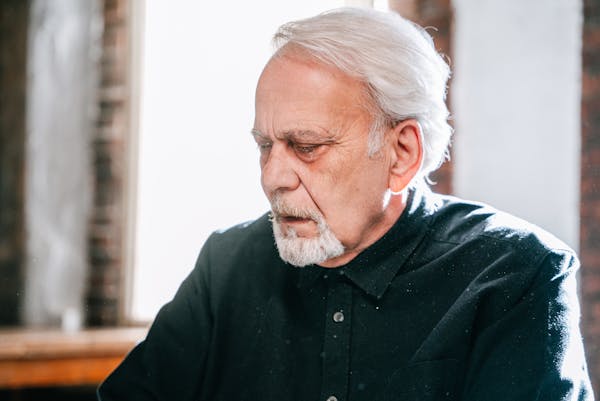Spiritual Guidance Blog
The Expansive Energy of Love
by Robert Meagher on 11/15/24

If you have been following me over the past few years, you
know that I love cycling. It has become a passion of mine. The more I cycle,
the more I realize that cycling has become a moving meditation. Cycling has
expanded to be a spiritual practice and teacher for me.
Turn the clock back 20+ years ago when I first moved to
Ottawa, CANADA, and started exploring the National Capital Region by bicycle.
Back then, other than public transit, my bicycle was my sole means to commute
to and from where I wanted or needed to go. My rides would typically be
leisurely outings along the amazing National Capital Commission (NCC) dedicated
bike paths through parkland and meandering riverside pathways. Rides would
typically range from 1 – 10 km in length.
Between 10 – 15 years ago, I started using my bicycle for
more than just commuting to and from places I wanted or needed to go. Cycling
became a pastime. I would spend the morning or afternoon touring around the
region. My joy and love of cycling expanded and the distances I would cycle
expanded too. I was now riding distances of upwards to 25 kms on a single
outing.
About 10 years ago, I started to think of my cycling as an
outing for part of the day. I would leave before noon, find myself a nice,
quiet spot to stop and have a lunch I prepared for myself. Then I would carry
on cycling for a while longer. Now my rides would regularly see me cycling 50
kms or more on an outing.
The more I adventured on my bicycle, the more I saw, and the
more wonderment flourished. I became inspired to keep exploring further. I
became energized to see what lay beyond ‘that’ stop sign, where ‘that’ road
would lead me, what ‘that’ destination would be like to cycle to and through.
My love for cycling just kept growing.
Then, 5 years ago, I started setting new goals for myself. I
wanted to cycle 100 km in a single day. This was a big deal for me. I gradually
worked myself up to the distance, first cycling distances of 60 km, then 70 km,
then 80 km…on a regular basis. I remember how exhilarating it was to be able to
cycle 100 km on a single ride. I was also becoming aware of how meditative my
long(er) rides were becoming. I would lose myself in a blissful state of being,
of cycling for hours at a time, stopping only for brief nature and nutrition
breaks.
Today, my rides are typically 150 – 175 km in distance,
riding for 8 - 9 hours. Earlier this season I completed one ride of 225 kms,
taking me more than 10 hours of riding to complete. Next season I intend to
join an international group of cyclists—with a Chapter here in Ottawa—called
the Randonneurs. The Randonneurs is a long-distance and ultra-long-distance
cycling club. Rides range from 100 – 1,200 kms. Yes, you read that
right…upwards to 1,200 kms. The thought of riding for days on end excites and inspires
me beyond description!
What’s the point?
The point is…when you are ‘in love,’ the energy of love
expands. The energy of love never, ever stops expanding. The very nature of
love is to continue to expand, without any incumbrances. My cycling journey and
adventures are merely a metaphor for the expansive nature of love. My rides are
symbolic of loves never-ending extension of healing energy.
Have you ever heard the expression, ‘Follow your bliss.’?
Well, if you follow your bliss, you will not only find love, but you will be
‘in love.’ Your joy, peace, and contentment will be indescribable. Your life
will be a meditation in grace and tranquility. You will live your life in the
heart of the Divine, where love is all there is.
Robert Meagher has
been ordained as an Interfaith Minister and certified as a Sacred Attention Therapy (SAT) Therapist. Robert is the Founder and Spiritual
Director for Spiritual Guidance and Co-Founder of the Center for Human Awakening.
Emotionally-Charged Moments Can Offer Much Joy
by Robert Meagher on 11/04/24

Emotionally-charged moments can offer us an abundance of
opportunities for healing. We have a tendency, however, to avoid
emotionally-charged situations. We have numbed ourselves to living our lives so
that everything unfolds without us having to feel our emotions. Feeling our
emotions has become so taboo that we have become a culture of automatons.
Worse, we have learned to repress and suppress our emotions. A recent outing
with my partner allowed everyone to experience the magical healing that feeling
our emotions offers.
My partner, Sherwin, has been living with Parkinsons for
over 20 years. At present, the symptoms are what may be described as advanced. Sherwin’s
mobility is significantly compromised and it has become necessary to acquire an
electronic mobility aid to help him perform daily tasks and activities.
For several months, we have been working with a local
organization that matches donors of electronic mobility devices with those in
need of these devices. During June, Sherwin was matched with a donor and we scheduled
a day and time to visit the donor and view the device.
So, on the day in question, Sherwin and I ventured to New
Edinburgh to visit the donor of the mobility device. It just so happened that
New Edinburgh was the neighborhood that Sherwin grew up in as a boy. So going
back to New Edinburgh was a trip down memory lane that brought up many emotions
for Sherwin. As we drove through New Edinburgh, Sherwin would share how he used
to play “over there,” and “visit friends over there,” and “attend school and
church over there”…and so on. In recalling his childhood, there were precious
moments where Sherwin became emotional and teared up. It was a wonderful mix of
joy, as evidenced by the smiles on Sherwin’s face and excitement in his voice,
and who knows what else as tears ran down his cheeks.
We finally arrived at the donor’s home. We were greeted by
the donor (we will call him Fred) and a representative from the organization
that facilitated the matching of Sherwin’s needs with the donor who had an
electric wheelchair to be donated to someone in need (we will call him Phil).
Sherwin took some time to look over the electric wheelchair
with Phil and tested it out. It was determined that the wheelchair was in good
working order / condition and would serve Sherwin well. At that point Sherwin
turned to Fred and asked, “Why are you donating this wheelchair?” It was a
perfectly natural question to ask; but what unfolded was a most precious
moment.
Fred responded, “My wife lived with MS, and she passed away
last month.” Fred started to cry. Fred gathered himself and continued, “It was
her wish to donate the chair to someone in need.”
Upon hearing Fred’s words, and witnessing the depth of
emotion flowing from Fred, Sherwin started to cry. Sherwin managed to eek out
through his tears, “Well, if you are willing to donate the chair to me, I sure
could use it. Thank you.”
I glanced over at Phil and he too was crying. While I cannot
know for certain why Phil was crying, I suspect it was a combination of being
moved by the very touching scene unfolding, and knowing that he had played a
crucial role in bringing together Fred and Sherwin to witness and experience
this precious moment.
Surprisingly, I did not cry. I was moved beyond words, but I
was moved with and to joy. I was so grateful to be present in the moment and
experience these three men openly sharing their emotions with each other. I
just smiled at everyone. As the intensity of the emotions gradually settled
down, I walked over to Fred, shook his hand, and thanked him for his kindness
and for donating the wheelchair so Sherwin may be able to improve the quality
of his life. I did the same to Phil.
It was such a rare moment, to ‘be’ with these three people
who were brought together by Divine intervention—to witness a depth of feeling
that was so genuine, so heartful, and so heart-centred. I felt truly blessed.
Robert Meagher has
been ordained as an Interfaith Minister and certified as a Sacred Attention Therapy (SAT) Therapist. Robert is the Founder and Spiritual
Director for Spiritual Guidance and Co-Founder of the Center for Human Awakening.
Catastrophizing Just Doesn’t Help
by Robert Meagher on 10/02/24

One month not long ago I injured my right knee. I had lifted
a heavy object one day, and the next day my knee was swollen and
non-weight-bearing to kneel on.
I became distraught over this turn of events. I immediately
went into worry mode and catastrophized about all the things I would not be
able to do because of my knee injury. I became upset that my knee injury may
affect my ability to ride my bicycle (a passion of mine). I became further
upset when thinking about how the injury may affect my ability to fully
participate in my upcoming Great Cycle Challenge---or if I would be able to
participate at all! Even though I had no idea how bad, or not, the knee injury
was, I immediately went into catastrophe mode and assumed the worst.
I immediately started my own rehabilitation, which focused
on using various essential oils to treat the injury. I continued with my daily
workouts, but with much less intensity. To my pleasant surprise, my knee showed
gradual signs of improvement each day.
I made a full recovery in the following weeks. As a
precautionary step, I had some xrays to see if there was any internal damage.
The xrays came back negative. I gradually returned to my normal exercise
regimen, at my normal intensity. I was able to enjoy my bicycle rides as I did
before my injury.
When I reflected on my experience, I realized that my early
catastrophizing was not helpful. Sure, I was upset and worried, but to have
allowed my mind to run away with thoughts of how this was going to affect my
life was way out of proportion at the time. It simply did me no good at all
worry about what might be (or might have been if I had not lifted that heavy
object in the first place!).
The experience was a welcome lesson for me in easing into
all that life offers. Instead of bemoaning my circumstances, I need to welcome
all that unfolds. Dare I say, I need to enjoy it all…even an injured knee.
Worry, upset and fear is not the vibrational mode required for healing. The
only vibration that heals is love.
Robert Meagher has
been ordained as an Interfaith Minister and certified as a Sacred Attention Therapy (SAT) Therapist. Robert is the Founder and Spiritual
Director for Spiritual Guidance and Co-Founder of the Center for Human Awakening.
Focusing On The Heart To Find Peace
by Robert Meagher on 01/08/24

An aspirant recently reached out to me with the following
question…
Do you have many experiences with focusing on the heart as a
place for finding peace?
Here was my response…
Thank you for blessing me with your beautiful question.
The practice you speak of (i.e., focusing on the heart as a place for finding peace…) most closely resembles what I know to be called ‘tonglen’. Tonglen is a Buddhist practice of breathing in the miseries of the world (in whatever form they may take), cleansing the miseries through your heart, and breathing out joy, peace, and love. In this short video, the noted Buddhist monk, Pema Chodron, speaks of the tonglen practice (https://www.youtube.com/watch?v=QwqlurCvXuM). The Dalai Lama and other Buddhist masters speak of, and practice, tonglen.
The tonglen practice, or the practice as you describe John Selby sharing it, is encouraged in other spiritual teachings. There are many teachings that speak of breathing into the heart of compassion…which is what the tonglen practice is at its core, its essence.
As for my personal experiences…when I began studying spiritual teachings, other students/teachers shared and emphasized their practice of breathwork through their heart. I can remember trying this practice and experienced much peace. As I have journeyed on with my spiritual study and practice, I recognize the human heart is merely symbolic of love and compassion. It is a bodily organ that we humans have imbued with some significance. I have allowed myself the awareness that the entire body can equally be that vessel for love and compassion. No one part of my body is home for love and compassion. My entire body is home to love and compassion. So…if I feel the need to bring peace to a situation, I will breathe in with all my body, and breathe out with all my body. It is the breathe that is the ‘life force,’ as Taoism teaches.
Thank you for your blessed outreach. And thank you for being YOU!
Shanti,
Robert Meagher has been ordained as an Interfaith Minister and certified as a Sacred Attention Therapy (SAT) Therapist. Robert is the Founder and Spiritual Director for Spiritual Guidance and Co-Founder of the Center for Human Awakening.
Changing The Stories We’ve Told Ourselves
by Robert Meagher on 12/06/23

I grew up in the Maritime Provinces, Nova Scotia
specifically. Food, and eating, was a big part of the culture in the Maritimes.
At least that was my experience, and a big part of the story I told myself
about my relationship with food.
The house I grew up in saw the main door of the house enter
into the kitchen. This was not an uncommon characteristic of houses in the
Maritimes at the time. Where most homes today have a foyer, many homes in the
Maritimes at the time saw the visitor or occupant enter the kitchen when
entering the house. This lended itself to food being a central part of the
culture of growing up in the Maritimes. When company would pop in for a visit,
everyone would gather around the kitchen table to gab and socialize. It didn’t
take long for food to appear on the table and for eating to commence.
I grew up in an era when wasting food was particularly
frowned upon (when hasn’t it been!). Even if I wasn’t hungry, which was rare, I
would still be encouraged to eat. “There are children starving in the world.
Eat up!”…I can’t tell you how many times I heard those words. It was also very
important to my mother that the children had plenty to eat, so there was always
plenty of food around. And having a second helping was customary, sometimes a
third serving, if for no other reason to demonstrate to my mom that I liked her
cooking.
The above, brief description of some aspects of the food
culture I grew up in unconsciously fed an elaborate story that I fabricated
about food and my relationship to food. It wasn’t until my 30s that I began to
even be aware of this story I had told myself.
I suppose I was one of the lucky ones. Even though my eating
habits were overindulgent at the least, I wasn’t always overweight. Most of my
family members were, however. Furthermore, the image of a ‘healthy’ person was
obscured by a cultural story that plump, some might say fat, overweight people
were indeed healthy, despite every known scientific journal and dietary
guideline suggesting otherwise. A slim person was not considered a healthy
person—not enough meat on their bones!
As I moved into my 30s, I became more aware of healthier
eating habits and began to change my relationship to food. But, as the saying
goes, … “old habits (or ‘stories’) die hard.”
As I moved through my 40s, and into my 50s, I learned to eat
a healthier diet. I found that a vegetarian-oriented diet was very beneficial
and improved my overall health. I was introduced to new ways of thinking about
my relationship to food and what it meant to be healthy for my body type.
One of the aspects of my relationship with food that stayed
with me throughout my 40s and early 50s, however, was a cyclical pattern of weight
gain and loss throughout the year. I would typically gain 10-15 lbs over the
winter months, sometimes more, only to lose the weight throughout the spring
and summer months. I can remember accepting this story as normal, after having
been told many times that gaining weight in the winter was a good thing—to ‘put
some fat on the bones’ for the long, harsh winter ahead. This story was a
leftover (pun intended) from my early years growing up in the Maritimes. It was
something I accepting as normal. Yet, I began questioning that story as I moved
into my 50s.
I became tired of the annual weight fluctuation. I learned
about the physiology of weight gain and loss and learned that the process of
weight gain and loss can take its toll on the body. Interestingly, its harder
on the internal organs when the body loses weight than when it gains weight (the
exception might be when quickly gaining excessive amounts of weight). Which is
why those engaging in weight loss programs are generally encouraged to lose
weight at a slow, steady rate—it’s easier on the body.
Last January, typically the time of year I begin to pack on
those pounds, I decided I was going to try and stop the habitual, cyclical
pattern of weight gain over the winter months. In addition to the stories I had
imbibed from early childhood mentioned previously, there was another cultural
story I became acutely aware of…and that is, once men and women hit their 50s,
it’s typical to gain weight, and very difficult to lose weight. As the story
goes, our metabolism slows down as we age and our ability to burn calories does
also. I set out to throw all my personal and cultural stories out the window
and transform my relationship with food once and for all, and for good!
So far, so good. I maintained my weight, even lost a few
pounds, throughout January, at a time of year when I had always gained weight
(at least that’s been the pattern for the past 20+ years). I maintained the
same weight I was the previous summer. I’ve managed to change my story about
the food I eat, my relationship to the food I eat, and my body image and
structure. I feel healthier and liberated.
So, let’s review the stories I’ve changed:
First, overindulgent eating, some might call it emotional
eating, is not the norm and it is not healthy for me. It is not how I want to
relate to food. So, I changed my overindulgent eating story. I no longer
overindulge when it comes to food. I eat modestly, and slowly, and see food as
a critical, nutritional component of my overall health and wellbeing, rather
than something that will make me feel better emotionally.
Second, being thin and lean, not underweight, but thin and
lean, is not unhealthy. I had lived my life on the edge of being overweight for
so long that I didn’t question it. I changed my story. I am currently sitting
right in the middle of the recommended weight range for my age, height, and
body structure.
Third, I had accepted cyclical/seasonal weight gain/loss was
normal. It never worked for me, however. That is, it never felt good. So, I am
on the path to changing that story too. I am the same weight in March as I was
in the middle of summer. This is new territory for me; and I love it! It feels
good.
Lastly, I had accepted that gaining weight when in your 50s
was normal and that losing weight in your 50s was just too difficult, if not
impossible. I’ve changed that story. With simple, moderate lifestyle changes,
I’ve showed myself that this story was false. I can lose weight in a healthy
way in my 50s.
The experience has been an eye-opening journey through the
stories I have created and about re-writing those stories. While this article
has focused on food, diet, and health as the storyline, the principal at play
here is far reaching and touches every aspect of our lives. We create elaborate
stories about ourselves that we may never be aware of. And the stories we
create become so engrained in us that most never, ever realize what these
stories are and, more importantly, that we can change them.
If there’s an aspect of your life you aren’t happy with,
give yourself the gift of contemplation about the story you have created about
that aspect of your life that isn’t happy. Then, change the story. You can do
it. You’re worth it!
Robert Meagher has
been ordained as an Interfaith Minister and certified as a Sacred Attention Therapy (SAT) Therapist. Robert is the Founder and Spiritual
Director for Spiritual Guidance and Co-Founder of the Center for Human Awakening.